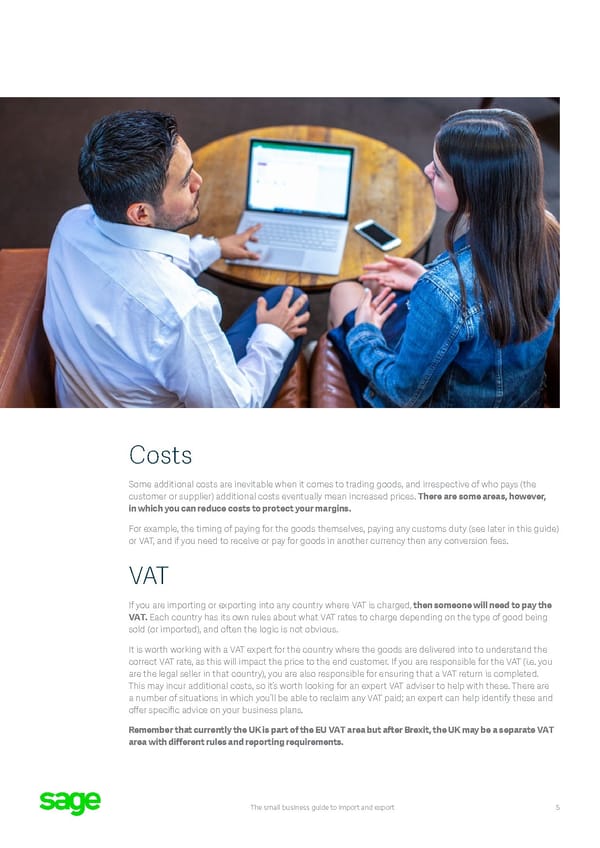Costs Some additional costs are inevitable when it comes to trading goods, and irrespective of who pays (the customer or supplier) additional costs eventually mean increased prices. There are some areas, however, in which you can reduce costs to protect your margins. For example, the timing of paying for the goods themselves, paying any customs duty (see later in this guide) or VAT, and if you need to receive or pay for goods in another currency then any conversion fees. VAT If you are importing or exporting into any country where VAT is charged, then someone will need to pay the VAT. Each country has its own rules about what VAT rates to charge depending on the type of good being sold (or imported), and often the logic is not obvious. It is worth working with a VAT expert for the country where the goods are delivered into to understand the correct VAT rate, as this will impact the price to the end customer. If you are responsible for the VAT (i.e. you are the legal seller in that country), you are also responsible for ensuring that a VAT return is completed. This may incur additional costs, so it’s worth looking for an expert VAT adviser to help with these. There are a number of situations in which you’ll be able to reclaim any VAT paid; an expert can help identify these and offer specific advice on your business plans. Remember that currently the UK is part of the EU VAT area but after Brexit, the UK may be a separate VAT area with different rules and reporting requirements. The small business guide to import and export 5
 Sage Small Business Guide: Import and Export Flipbook Page 4 Page 6
Sage Small Business Guide: Import and Export Flipbook Page 4 Page 6